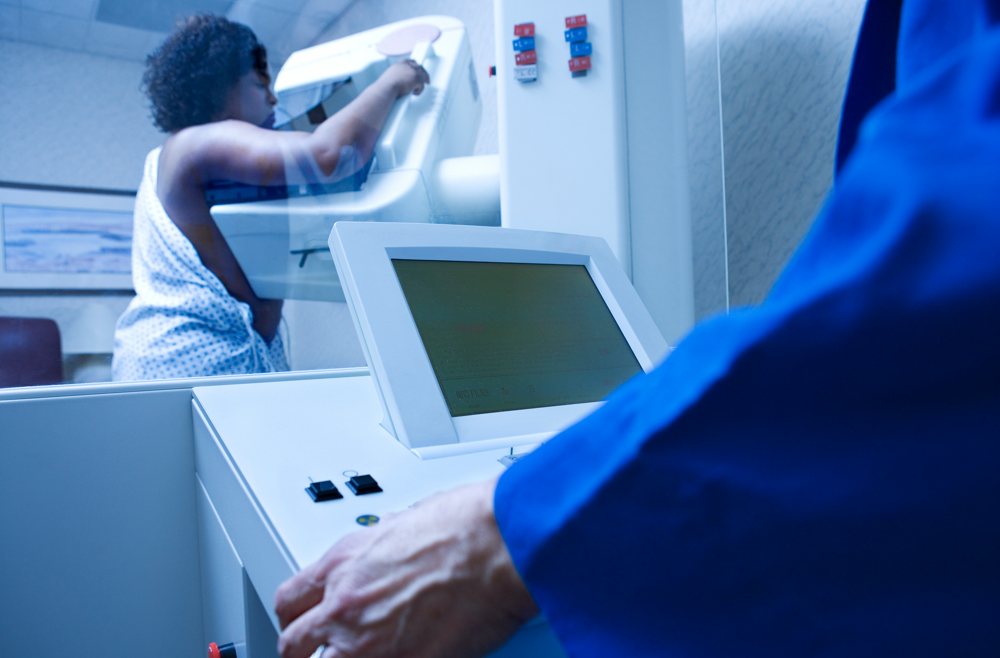
PHILADELPHIA – An analysis of nearly 200,000 patients who received mammograms between 2006 and 2015 across three U.S. health systems underscores the importance of understanding the heterogeneity of breast cancer risk factors for women of differing races, ages, and disease subtypes. The study, led by researchers in the Perelman School of Medicine at the University of Pennsylvania, were published in Cancer Medicine.
The cohort included 29,822 (15 percent) Black women — a group historically understudied in cancer research. Most strikingly, the researchers found that Black women had nearly a three-fold increased risk of triple negative breast cancers, which have a poor prognosis. While it is known that Black women have a higher risk of this type of breast cancer, the magnitude of the risk found in this study was impactful, given its comprehensive adjustment for breast cancer risk factors in a screened population.
Additionally, the researchers found that triple negative breast cancers were less likely to be screen detected and more likely than other subtypes to be diagnosed as interval cancers. Higher breast density was associated with increased risk of all four tumor subtypes, with a stronger association among premenopausal women for ER/PR+HER2- and TNBC.
In a separate study led by the same group, the researchers looked further at risk factor among Black women. They found that breast density was more strongly associated with TNBC than other subtypes, and obesity was associated with greater risk of TNBC among this group. Those findings were published in Breast Cancer Research and Treatment.
“The risk prediction models available are about 60 percent accurate for predicting risk of breast cancer,” said Anne Marie McCarthy, PhD, an assistant professor of Epidemiology at Penn. “In our studies, we see clear differences in risk factors across these types of breast cancers, and we need to do a better job of identifying how we can accurately predict risk for women, particularly for women of color.”
Penn Medicine is one of the world’s leading academic medical centers, dedicated to the related missions of medical education, biomedical research, and excellence in patient care. Penn Medicine consists of the Raymond and Ruth Perelman School of Medicine at the University of Pennsylvania (founded in 1765 as the nation’s first medical school) and the University of Pennsylvania Health System, which together form a $8.9 billion enterprise.
The Perelman School of Medicine has been ranked among the top medical schools in the United States for more than 20 years, according to U.S. News & World Report's survey of research-oriented medical schools. The School is consistently among the nation's top recipients of funding from the National Institutes of Health, with $496 million awarded in the 2020 fiscal year.
The University of Pennsylvania Health System’s patient care facilities include: the Hospital of the University of Pennsylvania and Penn Presbyterian Medical Center—which are recognized as one of the nation’s top “Honor Roll” hospitals by U.S. News & World Report—Chester County Hospital; Lancaster General Health; Penn Medicine Princeton Health; and Pennsylvania Hospital, the nation’s first hospital, founded in 1751. Additional facilities and enterprises include Good Shepherd Penn Partners, Penn Medicine at Home, Lancaster Behavioral Health Hospital, and Princeton House Behavioral Health, among others.
Penn Medicine is powered by a talented and dedicated workforce of more than 44,000 people. The organization also has alliances with top community health systems across both Southeastern Pennsylvania and Southern New Jersey, creating more options for patients no matter where they live.
Penn Medicine is committed to improving lives and health through a variety of community-based programs and activities. In fiscal year 2020, Penn Medicine provided more than $563 million to benefit our community.
"triple" - Google News
September 21, 2021 at 01:38AM
https://ift.tt/3lFdrp6
Black Women Face Three-Fold Increased Risk of Triple Negative Breast Cancers - pennmedicine.org
"triple" - Google News
https://ift.tt/3dc0blF
https://ift.tt/2WoIFUS
Bagikan Berita Ini















0 Response to "Black Women Face Three-Fold Increased Risk of Triple Negative Breast Cancers - pennmedicine.org"
Post a Comment